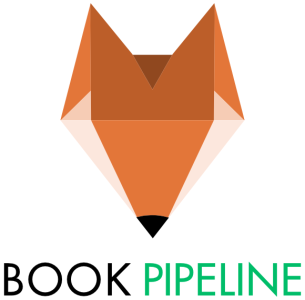
Ask the Editor is a column for your questions about the editing process and editors themselves. It also features first-page critiques. Want to be considered? Submit your question or submit your pages.
This month’s Ask the Editor is sponsored by Book Pipeline. The 2023 Book Pipeline Unpublished contest awards $20,000 for unpublished manuscripts across 8 categories of fiction and nonfiction. Over the past year, multiple authors have signed with top lit agents and gotten published. Register by May 25.
Question
Are there specific guidelines for beta readers? I recently agreed to be one for a writer who had not even tried to spell check let alone address structural issues. My understanding is that a beta reader should be given the manuscript just before it is revised to go to the agent or publisher?
—Beta Reader
Dear Beta Reader,
Beta readers are the angels of the literary world, but as your question points out, serving as someone’s beta reader doesn’t mean agreeing to read whatever a writer throws at you. It’s okay to set some expectations.
While you can Google tips for working with beta readers and beta reader etiquette, the relationship between author and reader often varies based on what role you’re playing in the manuscript’s development.
There are three primary types of beta readers.
1. Readers from your target audience who enjoy stories about specific topics or from specific genres. Their main job is to share what they liked, what’s not working for them, and whether they’d buy the author’s book. It’s possible to ask these readers for specific feedback on issues like world building or character development, but it’s important to remember that these beta readers aren’t editors and they’re not expected to play one. Some readers are paid for their work, but most are not.
2. Sensitivity readers and subject-matter experts are skilled readers who are always paid for their work. Authors hire sensitivity readers when they need feedback on specific aspects of their projects, such as making sure BIPOC or LGBTQIA+ characters aren’t falling into stereotypes or serving token roles. Subject matter experts will confirm whether what you’ve written about quantum physics, or a surgical procedure, is accurate and believable. It’s best to engage these readers just prior to querying or publishing a manuscript. That means it’s gone through all the stages of the writing process, from drafting and revising to proofreading.
3. A third type of beta reader is the writing friend. These are often people authors know through critique groups, classes, conferences, or online communities, though the best readers are people who’ve never read the author’s work. Often writer friends will perform this task for each other at no cost.
Writers who serve as beta readers often read work that runs the gamut, but the best time to serve in this role is after several drafts have been completed—one to get words on a page, one or two to arrange them into what looks like a story, and a few additional ones to address issues like pacing, time management, or character development. Feedback from these readers is likely to be more substantial than what you’d receive from a target-audience or sensitivity reader but won’t be as specific or solutions focused as what you might get from an editor.
Once you know what kind of reader you are, have a conversation with the author to see if you’re a good match. Doing this is essential, because many authors have a poor sense of how far along their manuscripts actually are. While it’s clear you’ve already agreed to serve as someone’s beta reader, that doesn’t mean you can’t go back and have this conversation. In fact, doing so could be a gift to you and the author—especially if the errors you’ve encountered have dampened your enthusiasm for their work.
Before you agree to beta read, ask for a one-page synopsis of the book and the author’s deadline for receiving feedback. If the deadline doesn’t work with your schedule or the premise doesn’t speak to you, respectfully decline.
Still interested? Dig a little deeper by asking how many drafts they’ve completed and what work they’ve done to support the manuscript’s development. Two red flags to look for are: new writer who hasn’t taken any classes and first draft.
If their answers suggest the work isn’t ready, tell the author you’d love to read their book after more work has been done. That’s because great beta readers have fresh eyes, which means they only read a manuscript once. Spell out what “ready” means based on your role, so they know when to contact you.
If you decide to work with an author, you can try to set some guidelines, especially if you get the sense the author hasn’t done this before or is being haphazard in their approach. For example:
- The book will be submitted by X date in X format. While target audience readers typically work with print copies or PDFs, writing friends and sensitivity readers typically need the ability to offer in-text comments in MS Word, Pages, or Google Docs.
- The document will be double spaced, paginated, and include numbered chapters.
- The author’s name and title will appear in the document’s header.
- A comprehensive spell check and read aloud will have been completed prior to submission.
Even with these protections in place, it’s ideal to have a first chapter “trial period” as part of the process—for everyone’s benefit—so you can bow out if the work simply doesn’t resonate with you, regardless of the reason.
Usually authors ask beta readers several, specific questions about the manuscript. If this is a focused reading on something like character development, then you might know these questions in advance. For more general readings, you might receive questions later in the process, so they don’t color your perception of the story.
Early conversations and guidelines often lead to happy collaborations, but sometimes guidelines aren’t followed, you might discover the work isn’t ready, or something in the manuscript doesn’t speak to you. If that happens, it’s okay to stop reading and say you’re not the right reader for the book. It might feel awkward to do this, but it’s a blessing for both of you. Writers who know problems exist can address them, and either resubmit when the work is ready, or find someone who’s a better match. Meanwhile, you’ll maintain your enthusiasm for the writer or work.
On behalf of authors everywhere, thank you for your service. We love you. We need you. We honor and respect all you do to support us.
This month’s Ask the Editor is sponsored by Book Pipeline. The 2023 Book Pipeline Unpublished contest awards $20,000 for unpublished manuscripts across 8 categories of fiction and nonfiction. Over the past year, multiple authors have signed with top lit agents and gotten published. Register by May 25th.
Lisa Cooper Ellison is an author, speaker, trauma-informed writing coach, and the host of the Writing Your Resilience podcast. She’s spent the last two decades helping clients and students turn difficult experiences into art, and teaches courses in memoir, the psychology of writing, and the book proposal. Winner of the 2022 HippoCamp edition of the Lancaster Story Slam, her essays and stories have appeared on Risk! and in the New York Times, HuffPost, Hippocampus Literary Magazine, and Kenyon Review Online, among others.


An excellent, insightful post that sheds much light on the Beta reading process. Thank you!
Thank you so much, MaryAnn! 🙂
Very helpful and specific piece. Thank you.
I’m glad you enjoyed it, Alice. 🙂